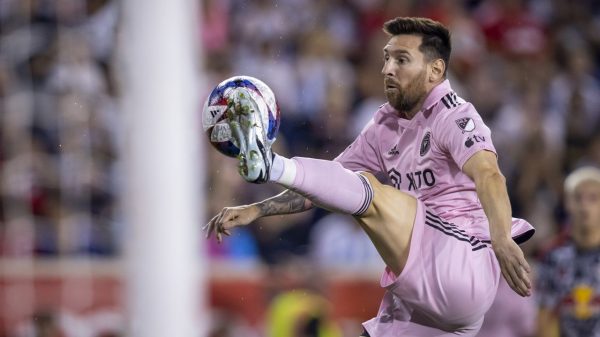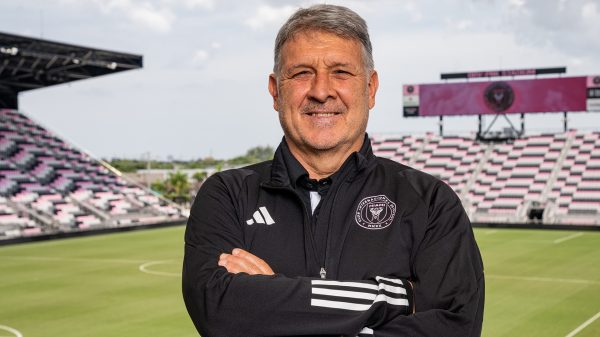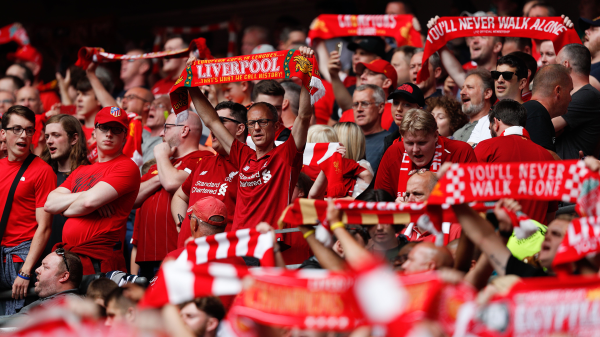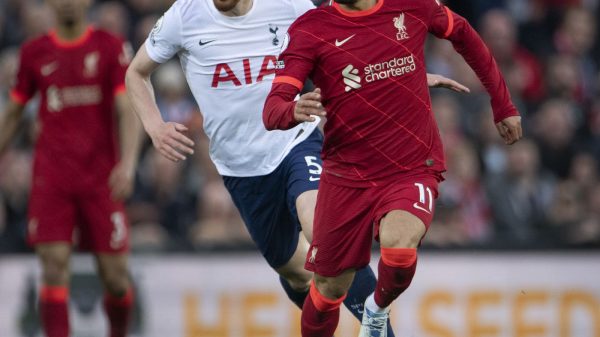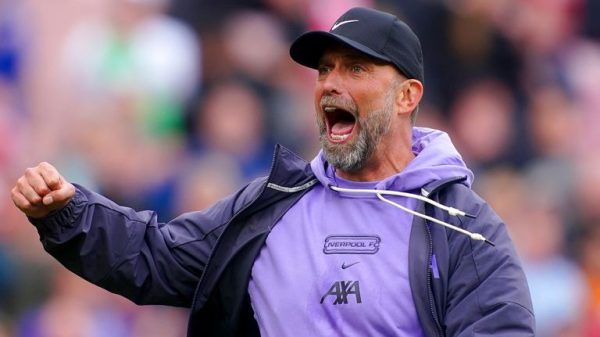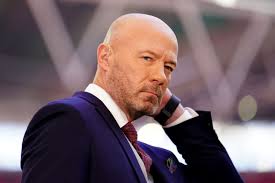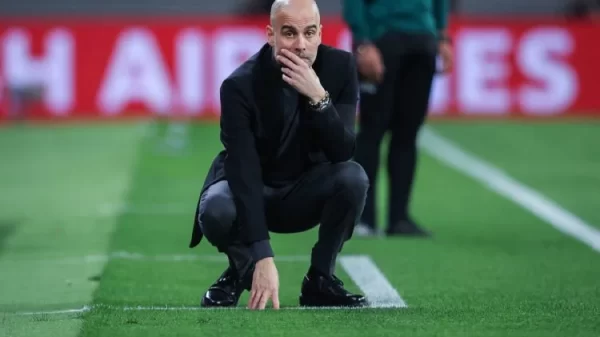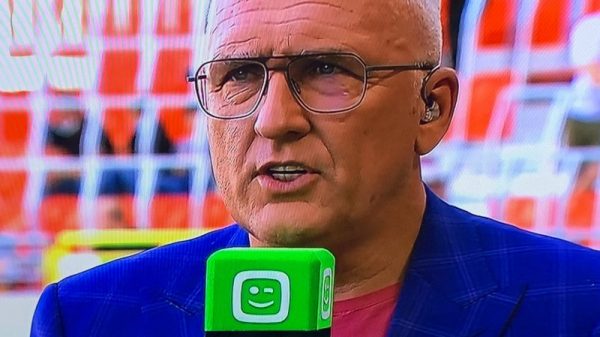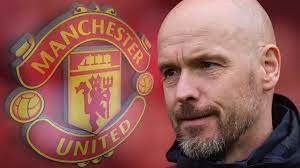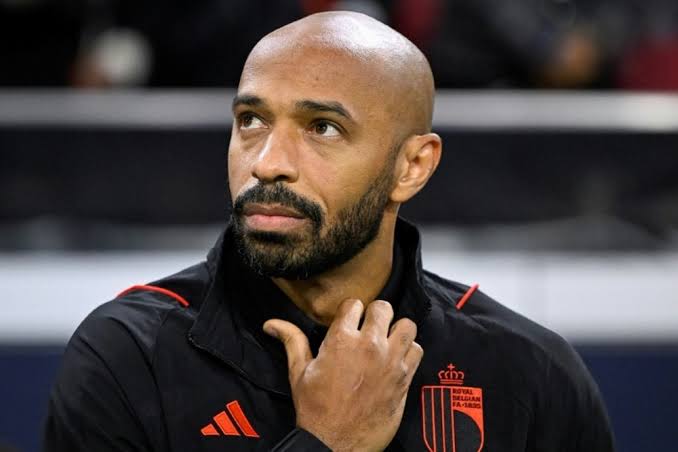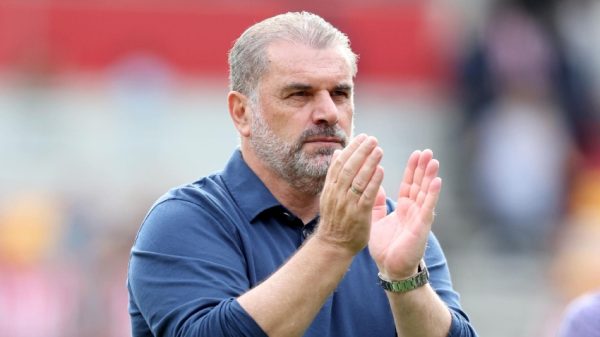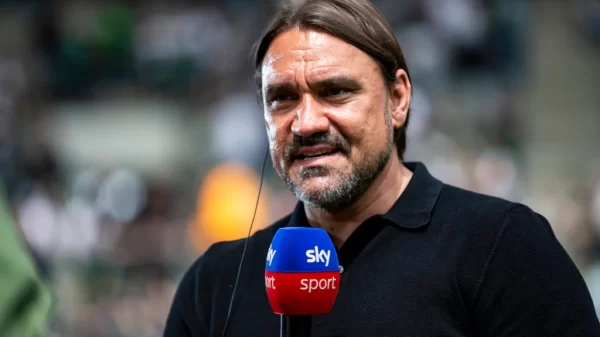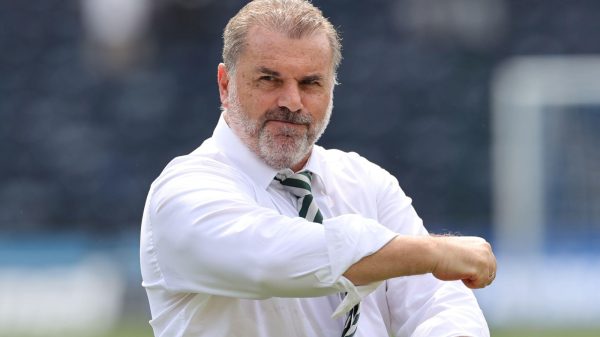Thierry Henry- Biography
Thierry Henry is a name that conjures up success, legendary status, and a lethal striker whose only motivation is to defeat his adversary. Henry is well-known not only to Arsenal supporters but to anyone who ever witnessed the French attacker play in England during his prime. The retired French footballer holds the record for most goals scored for both the French national team and English club Arsenal. This concise biography covers the legend’s early years, football career, and accomplishments.
Childhood
Antoine and Marylese Henry gave birth to Thierry Daniel Henry on August 17, 1977, in Les Ulis, a tiny Parisian suburb. He grew up in a neighborhood that resembled a ghetto. His father encouraged him to play sports and devote the majority of his attention to athletics despite the family’s small flat. Henry was often accompanied to neighborhood soccer games by Antoine, and it soon became clear that he was a superior player than kids his age. He joined the Les Ulis and Palaiseau junior squad, and by the time he was 13 years old, he was already playing for the Viry-Chatillon Under-15 team.
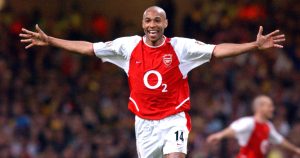
His mother brought him to Alexander Fleming School in Orsay when his parents divorced so he could devote more time to soccer there. He was selected for the Clairefontaine Academy of the French Football Federation at the age of 14.
Basic facts
Birth: 1977
Country: French
Position: Forward
Clubs
Monaco (1994–1999)
Juventus (1999)
Arsenal (1999–2007)
Barcelona (2007–2010)
New York Red Bulls (2010–2014)
Arsenal (2012, loan)
Stats
Club football: 581 matches, 284 goals
National team: 123 matches, 51 goals
Professional career
Henry signed an apprentice deal with then-Monaco manager Arsene Wenger while still a student at the Academy, and in 1994, when his team fell to Nice 2-0, he made his first professional debut. Under Wenger’s guidance, Henry won the Young Player of the Year award for France in 1996. He served as the captain of France’s Under-18 team during the European Championship, scoring seven goals. He was selected for the French team that won the FIFA World Cup in 1998 as a result of his excellent performances. He shared the field with outstanding athletes like Emmanuel Petit (Arsenal), Robert Pires (FC Metz), Lilian Thuram (Parma), Laurent Blanc (Olympique Marseille), Marcel Desailly (AC Milan), and Patrick Vieira (Arsenal).
Before joining Juventus in 1999, who paid 10.5 million pounds to bring the French footballer into the Italian Serie A, Henry scored 20 goals in 105 games for Monaco. Henry failed to achieve the success he was supposed to have at Juve, and after just one season there, he left for 11 million pounds to join Arsenal, where he was reunited with Arsene Wenger, his coach.
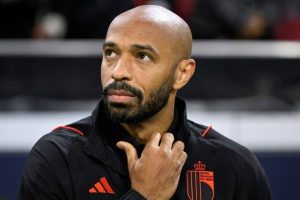
Henry’s primary position was as a left winger, but Wenger switched him to a striker, where he later developed into one of the most devastating attackers to play in the English Premier League. He established himself as the team’s leading scorer, and after an outstanding debut campaign, his second campaign with Arsenal was even more successful. He guided Arsenal to the FA Cup final against Liverpool, but lost when they were defeated 2-1 at Wembley.
Thierry Henry was the league’s leading goal scorer in the 2001–2002 season with 24 goals. Additionally, under his leadership, Arsenal won both the FA Cup and the Barclays Premier League. He continued to score goals for Arsenal the following year, totaling 32 across all competitions, and helped his team win the FA Cup once more. He was also voted player of the match in the championship game. Henry led the Premier League in scoring in the 2003–2004 season with an incredible 30 goals, helping Arsenal win the championship without dropping a single game. They were given the moniker The Invincibles for accomplishing this, which was last done by Preston North End in 1888–1889—115 years until Arsenal repeated it in 2003–2004.
Henry won the FWA Footballer of the Year award twice in a row in 2004, making him the only player to do it in fifty years. He led Arsenal to the 2005 FA Cup final against Manchester United, but a knee injury prevented him from playing in the decisive game, which saw Arsenal win their tenth FA Cup. Henry became Arsenal’s all-time leading scorer on October 17, 2006, surpassing Ian Wright’s 185-goal record. Henry currently holds the record with 228 goals. He was chosen as the Footballer of the Year in the English Premier League for the third time, making him the first person to do it in 59 years.
One of five bronze statues honoring former Arsenal players has been erected outside the Emirates Stadium to ensure that no one will ever forget the team’s hero.
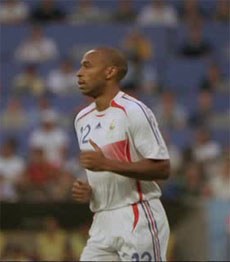 Thierry Henry was a member of the team that won the UEFA Euro in 2000 after winning the World Cup in 2002. Two years later, the French squad had a catastrophic disaster at the Korea/Japan World Cup, and Henry was furious when he was sent off against Uruguay in the second match. With Henry on the team, things would go better in the 2006 World Cup, which saw France get to the final (Italy would win following a penalty shootout).
Thierry Henry was a member of the team that won the UEFA Euro in 2000 after winning the World Cup in 2002. Two years later, the French squad had a catastrophic disaster at the Korea/Japan World Cup, and Henry was furious when he was sent off against Uruguay in the second match. With Henry on the team, things would go better in the 2006 World Cup, which saw France get to the final (Italy would win following a penalty shootout).
In 2006, he led his team to victory over FC Barcelona, a Spanish powerhouse, in the UEFA Champions League final, but Arsenal went down 2-1 as a result of Jens Lehman’s red card, which left them down to 10 players. One year later, Henry signed for Barcelona for 24 million pounds, where he scored his first goal against Olympique Lyon in the Champions League. Henry was a member of the Barcelona team that, in 2009, won six titles, including the Copa del Rey, the Spanish La Liga, the Spanish Supercup, the EUFA Champions League, the UEFA Supercup, and the FIFA Club World Cup.
In 2010, he relocated to the US and signed a deal with MLS team New York Red Bulls. In their 2-0 victory over San Jose Earthquakes, he scored his first goal for the team. During the 2011–2012 season, he returned to Arsenal on loan for two months and scored significant goals, notably the game-winning goal against Leeds United in the FA Cup third round. He went back to Red Bulls in 2012, when he recorded his first hat-trick for an MLS team in a 5-2 victory over Montreal Impact. On December 1, 2014, he departed the New York Red Bulls, and on December 16, 2014, he made his retirement announcement.
After the career
Henry would work as a professional commentator for Sky Sports after the shoes were put on the shelf. In 2003, Henry married Claire Merry, with whom he had a daughter named Tea. However, their divorce was finalized in December 2008, five years later.


